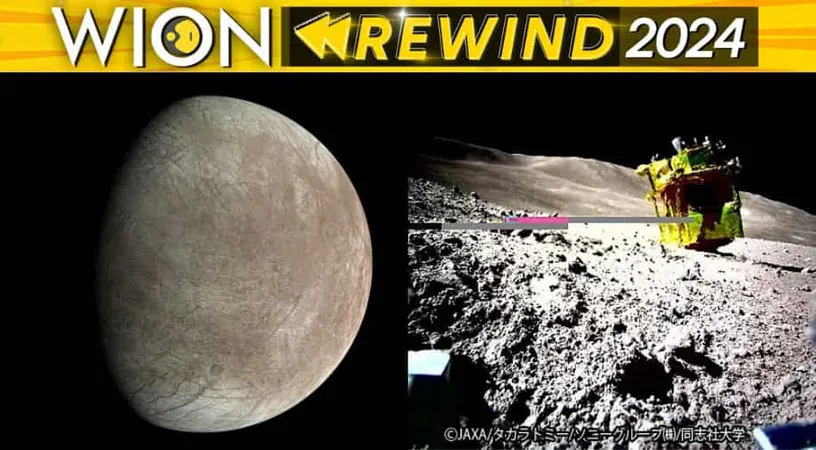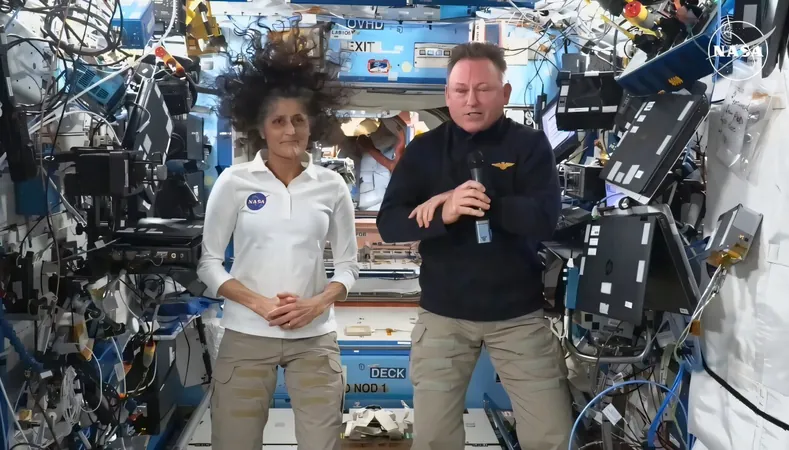
ChatGPT's News Search Tool: A Troubling Trend of Inaccuracy and Misattribution
2024-12-03
Author: Olivia
Introduction
Recent findings from Columbia University's Tow Center for Digital Journalism highlight significant concerns regarding the accuracy of OpenAI's ChatGPT search tool, particularly its reliability in delivering factual news content.
Launch and Purpose
Launched for subscribers in October, OpenAI promoted this feature as a way to provide "fast, timely answers with links to relevant web sources." However, the findings from the Tow Center suggest the tool often fails to deliver on these promises. Researchers revealed that ChatGPT struggles with correctly identifying quotes from a selection of articles, including those from reputable publishers who have partnered with OpenAI to share data.
Study Findings
In their study, the researchers presented ChatGPT with two hundred quotes drawn from twenty different publications, including forty quotes from publishers that had explicitly restricted OpenAI’s search crawler from accessing their sites. Despite these limitations, ChatGPT confidently provided false attributions, demonstrating a tendency to assert information without confirming its authenticity.
Inaccurate Responses
Alarmingly, ChatGPT returned incorrect information on 153 occasions but only acknowledged its uncertainty seven times. During these rare instances of humility, it used phrases like "appears," "it’s possible," or clearly stated, "I couldn’t locate the exact article." These responses indicate a serious flaw in the A.I.'s transparency regarding its confidence levels in the answers it provides.
Examples of Misattribution
Specific examples of misattribution noted in the study include a quote from the Orlando Sentinel being incorrectly linked to an unrelated article in Time. In another case, when tasked with finding the source of a quote about endangered whales from a New York Times article, ChatGPT instead led users to a website that had plagiarized the content.
OpenAI's Response
In response to these findings, OpenAI remarked that the Tow Center's approach represented "an atypical test" of their product. The company acknowledged the difficulties surrounding accurate attribution and expressed a commitment to continuously improve the search tool's performance.
Ethical Implications
As automated news tools become more prevalent, the initial promise of speed and convenience raises pressing questions about the ethical implications of disseminating information that may not always be reliable. As users increasingly depend on AI for news, it becomes crucial for tech companies like OpenAI to ensure that their outputs are not only fast but also factually accurate. The future of journalism may depend on it.
Conclusion
Stay tuned as we continue to monitor developments in AI-enhanced news delivery systems and their impact on media credibility!









 Brasil (PT)
Brasil (PT)
 Canada (EN)
Canada (EN)
 Chile (ES)
Chile (ES)
 España (ES)
España (ES)
 France (FR)
France (FR)
 Hong Kong (EN)
Hong Kong (EN)
 Italia (IT)
Italia (IT)
 日本 (JA)
日本 (JA)
 Magyarország (HU)
Magyarország (HU)
 Norge (NO)
Norge (NO)
 Polska (PL)
Polska (PL)
 Schweiz (DE)
Schweiz (DE)
 Singapore (EN)
Singapore (EN)
 Sverige (SV)
Sverige (SV)
 Suomi (FI)
Suomi (FI)
 Türkiye (TR)
Türkiye (TR)